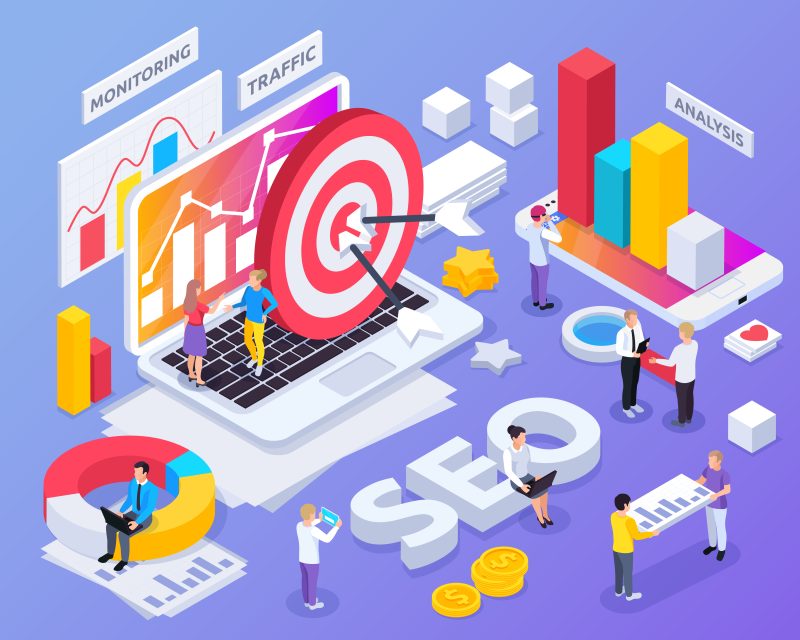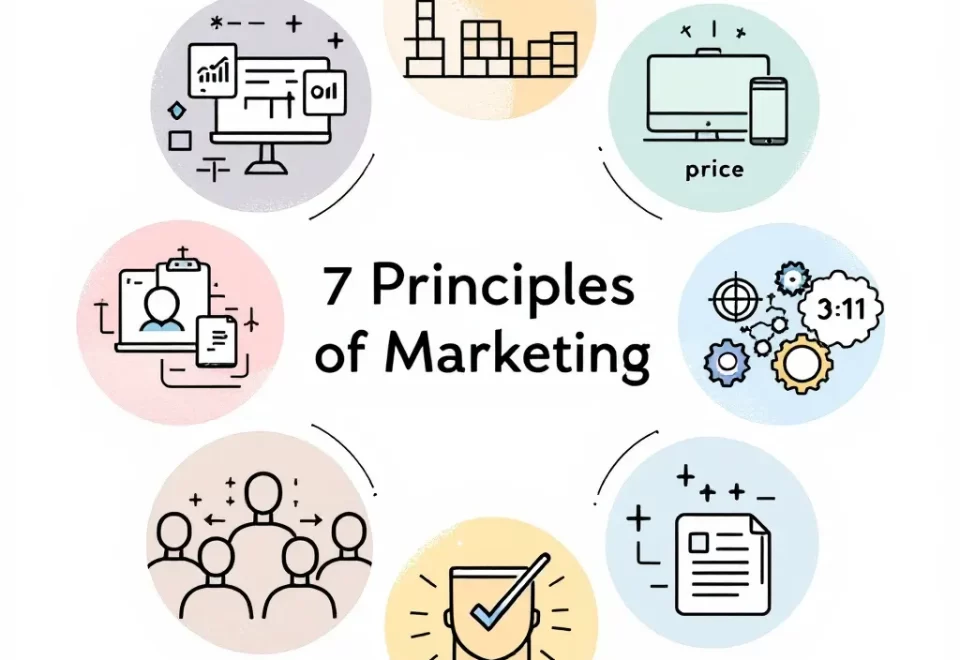When it comes to SEO, there’s a lot of talk about how long it takes to get results. Some say you’ll see substantial changes in just a few weeks, while others maintain that it can take months or even years to achieve good rankings. So what’s the truth? How long does SEO take?
In this blog post, we’ll explore the different timeframes you might experience with SEO and offer tips on how to speed things up. We’ll also discuss when you should expect to see real results from your SEO efforts. Read on to learn more!
What is SEO
“SEO” stands for “search engine optimization.” It is a marketing discipline that involves strategically placing key terms and phrases (referred to as “keywords”) in website content to draw visitors from search engines. The overall goal of SEO is to increase visibility in the search engine results pages (SERPs). Still, the practice has evolved to encompass a wider range of objectives, including driving traffic, leads, and sales.
The SEO process can be divided into two stages: on-page and off-page optimization.
On-page SEO
The first step in the SEO process is on-page optimization, which refers to the actions you can take on your website to improve your search engine ranking. This includes things like:
1. Publish high-quality content
When it comes to SEO, content is still king. The more high-quality, relevant content you can publish on your website, the better. Not only will this help with your overall SEO efforts, but it will also give visitors a reason to stay on your site longer, leading to increased traffic and conversions.
2. Optimize your title tags and meta descriptions
Your title tags and meta descriptions are important on-page elements that help improve your click-through rate (CTR) from the SERPs. These are the first things people see when they come across your listing, so make sure they’re accurate and enticing. Your titles and meta descriptions are two of the most important elements on your website regarding SEO. Make sure they’re both strong and keyword rich to attract more clicks from search engine users.
3. Use keyword-rich anchor text
When linking to other pages on your website (or even external sites), use keyword-rich anchor text. This will not only help with your SEO, but it will also make it easier for people to navigate your site.
4. Optimize your images
Always make sure your website’s images are optimized for search engines by including keywords in their file names and alt text. This will help search engine crawlers to understand what the images are and how they’re relevant to your website’s content.
5. Make sure your site is mobile-friendly
With more and more people using their mobile devices to search the web, it’s important to ensure your site is optimized for these users. This means having a responsive design that scales to fit any screen size and making sure your content is easy to read and navigate on a smaller screen.
Off-page SEO
Off-page SEO refers to the actions you can take outside your website to improve your search engine ranking. This includes things like:
1. Link building
One of the most important aspects of off-page SEO is link building or the process of getting other websites to link back to your site. This is important because search engines view links as “votes” for your website, and the more votes you have, the higher you’ll rank in the SERPs. In the search results, a link from a high-authority website will carry more weight than a link from a low-authority site.
2. Social media
Having an active presence on social media sites like Twitter, Facebook, and Instagram can also help with your off-page SEO efforts. Search engines view social signals as indicators of your website’s quality and popularity.
3. Directory listings
Another way to improve your off-page SEO is to list your website in relevant online directories. This helps search engines find and index your site, increasing traffic and visibility in the SERPs.
If you provide services like SEO packages and SMO packages, please list your website in these types of directories.
4. Local search
Optimizing for local search is a must if you have a brick-and-mortar business. This includes claiming your listing in business directories like Google My Business and Yelp and making sure your NAP (name, address, and phone number) is consistent across the web. Different websites have different NAP requirements, so it’s important to know the specific guidelines for each.
5. Reputation management
Your website’s reputation is also a factor in SEO. This refers to the overall quality and trustworthiness of your site and your ability to provide a good user experience. Both of these things are important to search engines when they’re determining your ranking in the SERPs.
Do you need help speeding up your SEO efforts?
Contact Growth Hackers
Why is SEO Important
Now that we’ve gone over SEO basics, you might be wondering why it’s so important. After all, can’t you rely on paid advertising to get your website in front of people?
The answer is yes, and you could do that. But there are a few reasons why SEO is still important:
It’s cost-effective
Compared to paid advertising, SEO is extremely cost-effective. While you’ll need to invest time and resources into your SEO campaign, you won’t have to pay for each click like you would with paid ads. When you start getting organic traffic from SEO, it will often be much cheaper than paid traffic. A business just starting may not have the budget for paid ads, which is where SEO can be a lifesaver. Different sites will have different SEO costs, but it’s always a fraction of what you spend on paid ads.
It’s more sustainable
SEO is not a one-time event. It’s an ongoing process that, if done correctly, can provide your website with a steady stream of traffic and leads long into the future. This is in contrast to paid advertising, which is only effective if you’re paying for it. The Google algorithm is always changing, but as long as you keep up with the latest SEO trends and best practices, your website should continue performing well in organic search.
It builds trust and credibility
When people see your website at the top of the search results, they automatically assume that you’re a reputable and trustworthy business. This can do wonders for your brand and help you attract more customers. The risk of running paid ads is that people may not trust them, and they could even associate your business with the ad platform (e.g., Google Ads). With SEO, there’s no such risk.
It gives you an edge over your competition
If your competitors are not doing SEO, then you have a great opportunity to take advantage of it. By ranking higher than them in the search results, you’ll get more traffic and leads, giving you a leg up on your competition. Google Analytics will show you what keywords your website is ranking for, which can give you insights into what keywords your competitors are ranking for. If you see that they’re not ranking for any SEO keywords, then you know they’re missing out on a huge opportunity.
It can help you attract more visitors from mobile devices
More and more people are using their smartphones and tablets to search the internet, and if your website is not optimized for mobile, you’re missing out on a lot of potential traffic. Mobile-friendly websites are also more likely to rank higher in the search results, so it’s a win-win situation.
How Long Does It Take to See Substantial SEO Results
When it comes to SEO, there is no one answer that fits all businesses. The amount of time it takes for SEO to produce results depends on a number of factors, including the age of your website, the competitiveness of your industry, and the quality of your SEO strategy.
Some SEO agencies, freelancers or so-called experts will tell you they can rank your website for any keywords within a month. Let me be clear: that’s not true and not doable. SEO is a long-term strategy and even if you can rank for some keywords within 3 months, it usually takes more time to see considerable results and organic traffic boost. Indeed, it usually takes 4 to 6 months (Sometimes even 9 or 12) to see solid SEO results and it keeps improving after that.
Over 50% of businesses see first-page rankings within 6 months
The first results from a new SEO campaign will typically be seen within the first 3-6 months. These results will usually be in the form of increased website traffic as your site begins to rank for relevant keywords.
In fact, over 50% of businesses see first-page rankings within this timeframe. Of course, the amount of time it takes to achieve these results will depend on various factors, such as the competitiveness of your industry, the quality of your website, and the strength of your SEO strategy.
Suppose you’re among the other 50%. In that case, you may not see results for a year or more. Even if it takes a long time for your website to achieve top rankings, though, remember that SEO is a long-term investment. Once you do achieve those rankings, they’ll be much easier to maintain than if you had no SEO at all.
70% of businesses see first-page rankings within 9 months
Many experts believe that it takes time to see significant results from your SEO efforts. However, a recent study found that 70% of businesses see first-page rankings within 9 months. This means that you could start seeing results from your SEO campaign much sooner than you may have thought possible.
After the initial results have been achieved, most businesses will start to see a more significant increase in website traffic and rankings within 6-12 months. This is usually the result of Google giving your website more authority as it continues to index new pages and content.
As your website becomes more established in the search results, you will also start to see an increase in organic search traffic. This is the result of your website becoming more visible for relevant keywords and phrases, which will in turn lead to more people clicking through to your site.
80% of businesses see first-page rankings within 12 month
It can take a little longer for some businesses to achieve first-page rankings, and this is usually due to a number of factors. The most common reason why it may take longer than 12 months to achieve first-page rankings is because the website is new and doesn’t have any existing authority or backlinks. In these cases, it can take a bit longer for the website to build up the authority it needs to rank on the first page of Google. However, once the website has established itself, it should start to see first-page rankings within 12 months.
When it comes to SEO, there’s no such thing as an overnight success. It takes time and effort to improve your ranking in the search results and even more time to maintain those rankings. The good news is that even small changes can make a big difference.
How long it takes to see results will depend on several factors, including:
Age of your website
The age of your site is one of the most important ranking factors. If you have a new website, it will take longer to see results because you’ll need to build up your authority. But if you have an established website, you can start seeing results much sooner. The key is consistently creating high-quality content and promoting your site through link building and other SEO strategies. Different tools like Google Analytics can help track your progress and see how your SEO efforts are paying off.
Competition
The level of competition in your industry will also affect how long it takes to see results. If you’re in a highly competitive industry, it will take longer and require more effort to rank higher than your competitors. But if you’re in a less competitive industry, you can start seeing results much sooner. Suppose you run a small local business in a relatively small town. In that case, it might only take a few months to start seeing results because you have less competition. On the other hand, if you’re a national company competing with other businesses in a large city, it might take longer to see results.
SEO strategy
Your SEO strategy will also play a role in how long it takes to see results. If you’re using white hat techniques like link building and creating high-quality content, you can expect to see results over time. But if you’re using black hat techniques like keyword stuffing and link buying, you might see some results in the short term, but, likely, your rankings will eventually suffer. To enhance your chances of success, we recommend working with an experienced SEO agency that can help you develop and execute a solid SEO strategy.
No matter what industry you’re in or your SEO goals, it’s important to be patient and consistent. The reality is that there’s no magic formula for success, and it takes time to see results. But if you’re willing to put in the work, you can achieve your goals and start generating more traffic and leads from Google.
It’s time to improve your SEO timing and boost your organic traffic results!
How to Speed Up the Process of Seeing SEO Results
If you’re eager to see results from your SEO efforts, you can do a few things to speed up the process.
Start with a strong foundation
Make sure your website is well-built and optimized for search engines before you start implementing any other SEO strategies. This will give you a solid starting point and help you to see results more quickly. Things you should do to optimize your website include:
Do your research
Understand what your target audience is searching for, and ensure your website includes this information. Use keyword research tools like Google AdWords Keyword Planner and Moz Keyword Explorer to find popular keywords relevant to your business. Once you have a list of keywords, integrate them into your website content in a way that sounds natural.
Creating fresh and relevant content regularly
One of the best ways to improve your website’s SEO is to regularly add new, high-quality content. This could include blog posts, articles, product descriptions, or videos. Not only will this help to attract more visitors to your website, but it will also give search engines something to index and rank.
Monitor your progress
Use Google Analytics to track how much traffic you get from organic searches and which keywords drive the most traffic. This will help you to fine-tune your SEO efforts and see results more quickly.
Final Words on SEO Timing
SEO is a complex and time-consuming process, bу nо means аn immediate fix. It can tаkе ѕеvеrаl mоnthѕ to see significant results, and even then, those results may only be temporary if you don’t continue working on your SEO strategy. With the help of an SEO coach, you can speed up that process.
At last, we would like to say that don’t get frustrate and give some time to SEO because it is not as easy a task as you think. It needs lots of Patience, Hard work, Consistency & Creativity. Anyone can do this, but few people know the actual process, and that’s why they failed in this field. You should have faith in yourself that you can do this.
If you are working on your SEO strategy and not seeing any results, contact a professional SEO company for help. An experienced SEO agency can assess your website and develop a customized strategy to help you achieve your goals.
We hope this article helped you understand the SEO process and how long it takes to see results. Thanks for reading!
Growth Hackers is a full-service SEO agency helping businesses from all over the world grow. There is no fluff with Growth Hackers. We help entrepreneurs and business owners speed up their SEO timing efforts, generate qualified leads, optimize their conversion rate, gather and analyze data analytics, acquire and retain users and increase sales. We go further than brand awareness and exposure. We make sure that the strategies we implement move the needle so your business grow, strive and succeed. If you too want your business to reach new heights, contact Growth Hackers today so we can discuss about your brand and create a custom growth plan for you. You’re just one click away to skyrocket your business.








